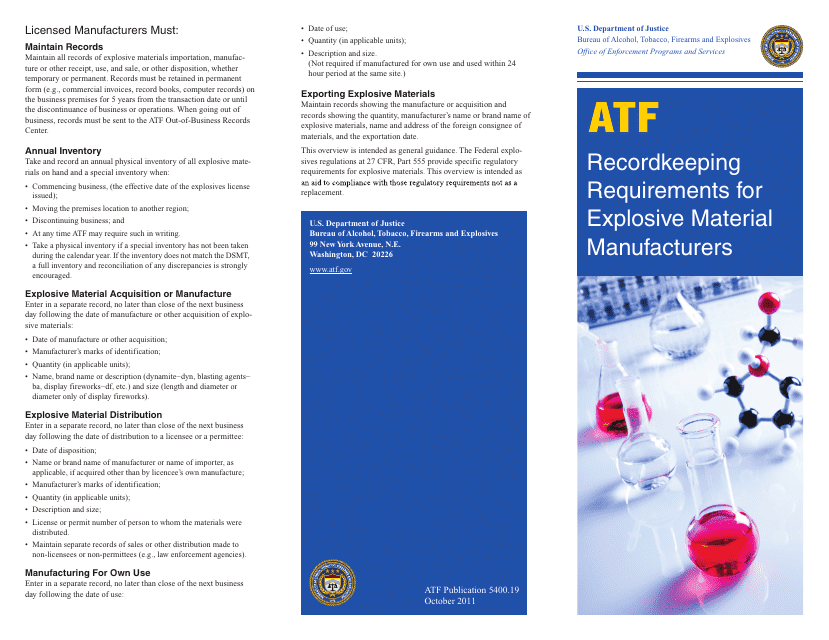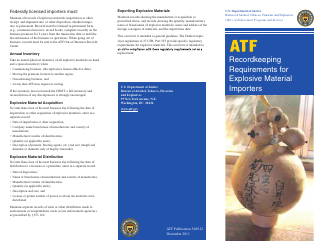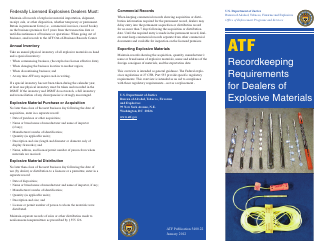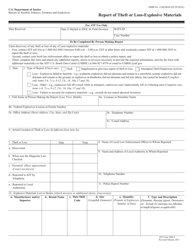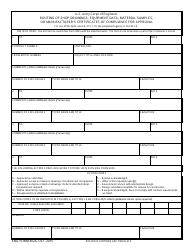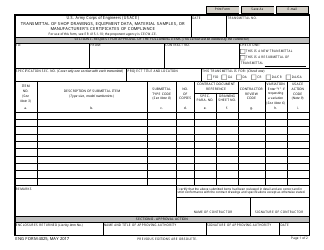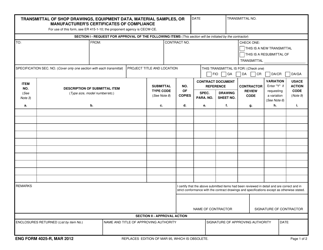Recordkeeping Requirements for Explosive Material Manufacturers - Example
The Recordkeeping Requirements for Explosive Material Manufacturers is a set of guidelines outlining the kind of documentation required by businesses dealing with the manufacture, purchase, distribution, or use of explosive materials. The regulations are put forth by the Bureau of Alcohol, Tobacco, Firearms and Explosives (ATF) in the U.S.
The requirement is designed to ensure safe and legal practices in the production and handling of explosive materials. For example, it provides a thorough record of transactions, which aids in regulatory oversight, ensures compliance with safety measures, and helps in tracking the source of explosives used in illicit activities if such situations arise.
Typically, documentation may include the date, quantity, and type of explosive, the person to whom it was distributed or from whom it was received, the method of conveyance, and more. These records must be kept accessible for periodic inspections by the ATF.
In the United States, manufacturers of explosive materials are required to file their recordkeeping requirements with the Bureau of Alcohol, Tobacco, Firearms and Explosives (ATF), as per the federal law. The ATF is the agency that monitors and regulates the activities related to explosives. The manufacturers must meet specific recordkeeping and storage requirements outlined in the Federal Explosives Law and Regulations. These include permanent records of acquisition and distribution of explosive materials, daily summaries of magazine transactions, and records of stolen or lost explosive materials among others.
FAQ
Q: What are the Recordkeeping Requirements for Explosive Material Manufacturers in the USA?
A: Manufacturers of explosive materials in the USA are required to maintain records of all transactions involving explosive materials. This includes the type, quantity, date of transaction, name, and address of the person receiving the explosive materials. All records must be kept for a minimum of five years.
Q: Are there specific Recordkeeping rules for Explosive Material Manufacturers in Canada?
A: Yes, explosive manufacturers in Canada are regulated by the Explosives Act and Regulations, overseen by Natural Resources Canada. They are required to keep records of the quantity and type of explosives manufactured, the sale, and transfer of explosives, and must retain these records for two years.
Q: What is the policy for Explosive Material Manufacturers' Recordkeeping in India?
A: In India, manufacturers of explosive materials must abide by the Explosives Act, 1884. They are required to keep records, including manufacture details, storage, sale, and transport of explosive materials. These records should be retained for at least three years.
Q: How does Australia oversee Recordkeeping by Explosive Material Manufacturers?
A: In Australia, manufacturers of explosive materials are regulated by the Australian Government Department of Industry, Science, Energy, and Resources. They are required to document and retain records pertaining to the production, storage, transfer, and disposal of explosives for a period of seven years.
Q: Why is recordkeeping important for Explosive Material Manufacturers?
A: Recordkeeping is important for traceability, ensuring safety and compliance with local, national, and international regulations. It helps authorities trace the origin of explosives in case of misuse, theft, or accident.
